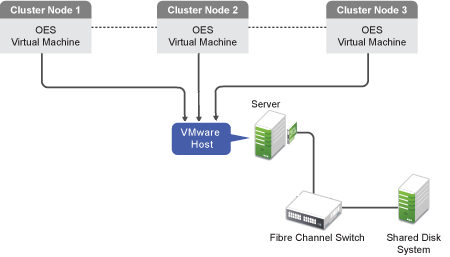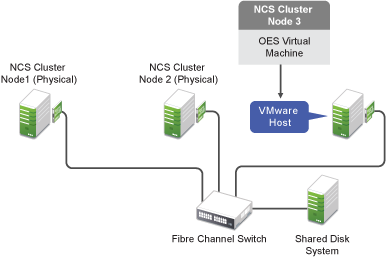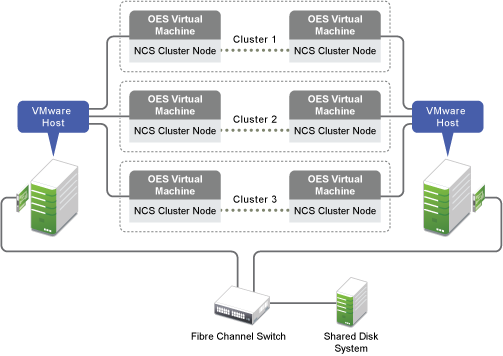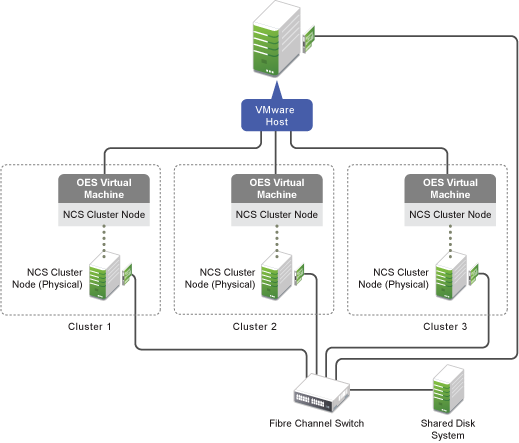3.1 Supported Configurations
A typical NCS cluster consists of a number of machines that coordinate through computer networks to make resources highly available. Machines can be physical, virtual nodes on a single VMware host, virtual nodes on different VMware hosts, or any combination of those.
This section illustrates the supported configurations. These examples are not intended to be limiting or an exhaustive representation of all possible combinations.
Table 3-1 Certified Configuration
|
Server |
ESXi |
|---|---|
|
OES 23.4 |
vSphere Web Client |
3.1.1 Physical Machines
In Figure 3-1, the NCS cluster nodes are all physical machines. The websites are cluster resources on shared disks that can fail over between the physical nodes. All nodes are running the same version of the OES operating system.
Figure 3-1 NCS Cluster with Only Physical Nodes

3.1.2 Virtual Machines on a Single VMware Host
In Figure 3-2, the NCS cluster nodes are all virtual machines. Each node is hosted on the same VMware host. All nodes are running the same version of the OES operating system.
Figure 3-2 NCS Cluster with Virtual Nodes from a Single VMware Host

3.1.3 Virtual Machines from Different VMware Hosts
In Figure 3-3, the NCS cluster nodes are all virtual machines. Each node is hosted on a different VMware host. All nodes are running the same version of the OES operating system.
Figure 3-3 NCS Cluster with Virtual Nodes from Different VMware Hosts

3.1.4 Mixtures or Subsets of All of the Above
In Figure 3-4, the NCS cluster combines physical nodes with a virtual node from a VMware host. All nodes are running the same version of the OES operating system.
Figure 3-4 NCS Cluster with Physical Nodes and a Virtual Node

In Figure 3-5, nodes from multiple clusters reside on the same VMware host. Multiple two-node clusters are formed by combining a virtual node from one VMware host with a virtual node from a different VMware host. All nodes in the same cluster are running the same version of the OES operating system.
Figure 3-5 NCS Two-Node Clusters with Virtual Nodes from Different VMware Hosts

In Figure 3-6, nodes from multiple clusters reside on the same VMware host. Multiple two-node clusters are formed by combining a physical node with a virtual node from the VMware host. All nodes are running the same version of the OES operating system.
Figure 3-6 NCS Two-Node Clusters with Each Physical Node Paired a Different Virtual Node from a Single Virtual Host
